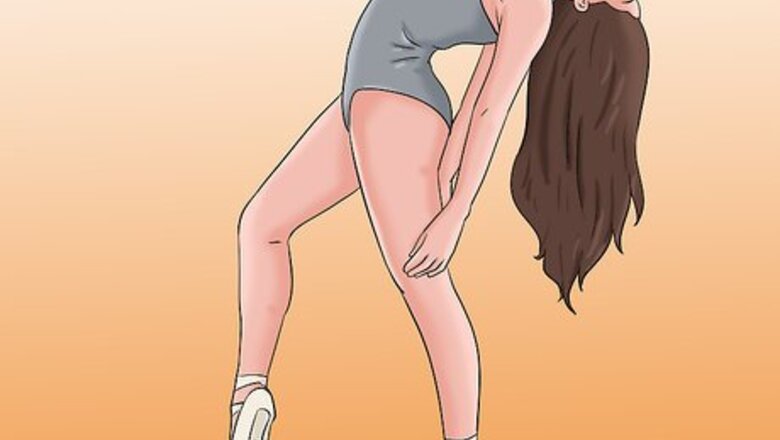
views
Practice, practice, practice!
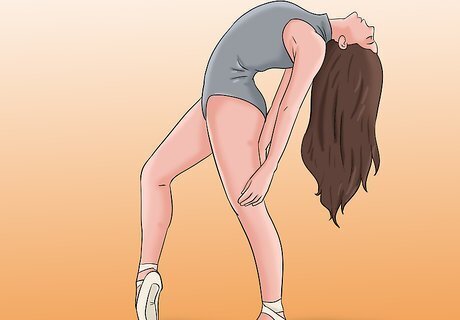
Go over every aspect of the performance until you are satisfied. To improve your practice, ask directors for pointers; they are there to help you out. While no show is perfect, with persistence, you can create a very satisfying end result.
Get good sleep for the last few nights before the performance.
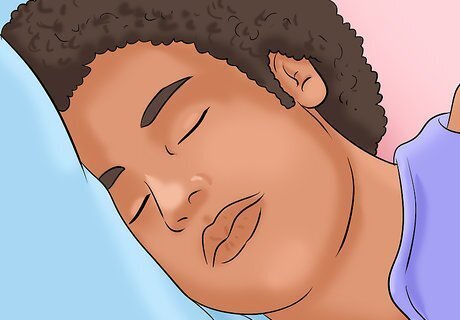
When you are in bed, picture yourself on the stage having a great time. Go through your lines, songs, and dance moves, and picture them going perfectly. Having anxiety about the performance will keep you awake, so the key is to stay relaxed and create a positive image of yourself on the stage.
Eat foods that will give you energy and that are good sources of protein.

Eat plenty of eggs, bananas, spinach, and orange juice. It's also important not to drink alcohol before a performance so that you can focus on what you need to do.
Make sure you know how to dress.

If your director has a certain dress code in mind, follow it. Because of the constant costume changes, wearing a black tank top and black shorts is efficient. Before wearing it onstage, practice at home. Pick out something in your closet similar to your costume, such as a dress. Practice slipping it on and off, and make sure that nothing snags or pulls. Make sure that whatever you wear backstage is appropriate for pictures, too. Most performers take pictures in their costumes, but sometimes you are required to change before coming out to meet the audience. You must be comfortable in quick change clothes, but still look presentable.
Make sure your makeup is stage-appropriate.

Some directors and shows call for little makeup if you have small theatre. However, it's likely you'll need stage makeup done, which is rather excessive. Your director will most likely tell you what your makeup is supposed to be, you may even have a makeup artist. If they don't tell you, ask. It is never okay to go onstage without any makeup because your face will melt into the lights.
Take care of your hair.

Make sure that your hair is not in your face and won't be squashed while changing costumes. Be sure to hairspray and tease, if you need the extra volume.
Keep a few essentials backstage.
For example, if allowed, keep a water bottle backstage. Don't drink a lot because this can affect your dancing, but just a few sips so that you can sing and speak easily.

Never bring anything backstage that you're not allowed to have. You should never disobey the director. Prepare Yourself Before a Performance Step 7Bullet2.jpg
Know how to act backstage.

Each theatre group is different in the way they set up backstage. If there are changing rooms in the back, take advantage of them. If not, remember that the entire cast are your friends and that it shouldn't be awkward changing in front of them. If you have a complicated costume -- for example, a dress with hard-to-reach buttons on the back or a zipper that always seems to disappear -- ask a friend to help you out.Prepare Yourself Before a Performance Step 8Bullet1.jpg When backstage, remember to be quiet. When the audience hears noise backstage, it ruins all of the hard work you put in to create an exceptional show, and is embarrassingly unprofessional.Prepare Yourself Before a Performance Step 8Bullet2.jpg

Gather the cast altogether before the beginning of the performance. Right before you go on stage, gather up all of the cast members and form a circle. Face outward, join hands and picture yourself on the stage. One person should start by squeezing the hand of the person next to them, and the next person will pass it on, and it will keep on going until you've gone around the circle. After this has been done, let go of hands and get ready for the first scene.
Don't be nervous when you are on stage!

It will be dark where the audience is seated, and you won't be able to see their faces. When you aren't saying lines, take deep breaths. Just make sure the audience can't tell. Just have fun!
Remember what side of the stage to enter and exit from.
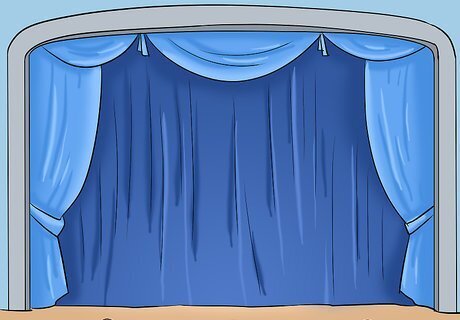
You can make up a funny rhyme to help you remember. Another good idea is to have a friend who can cue you before the next scene, or if the lights die for scenery change, they can nudge you in the right direction. Beyoncé Knowles Beyoncé Knowles, Singer & Businesswoman If you experience nerves, channel them so that they fuel you. "I think it's healthy for a person to be nervous. It means you care – that you work hard and want to give a great performance. You just have to channel that nervous energy into the show."
Remember to show expression.
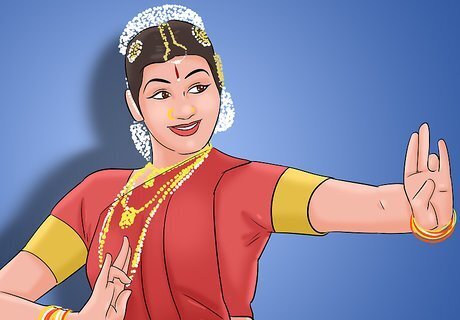
Be proud of your performance and display the emotion that your character is feeling. If you are performing an emotional scene, pull the audience into your tale so that it's an enjoyable experience. Keep in mind that you're not only representing who you are as performer, but also the rest of your cast and crew members and your directors as well! Remember to smile (if you are supposed to) and have lots of fun!
Make romantic scenes romantic.

Boring love scenes can be extremely disappointing for the audience. Don't be afraid to hold hands, put your arm around your partner, or even kiss. This is just a performance, it doesn't mean anything. If you feel awkward about something, talk to your partner about it. They'll understand and might even feel the same way. Talk about exactly what you want to do onstage, and what you don't want to do. That way, while it will be more comfortable and routine for you, the audience will love it!
Smile during the curtain call.

The curtain call is when the audience will be taking lots of videos and pictures, so wear a big smile. Depending on the type of show, you might want to stay in character for a few extra seconds before you break out into a smile. Also, if you have one last song to sing at the end, belt it out loud and proud. This is when all of your hard work pays off.
Post performance, change and go directly to meet the people who came to see you.

Be gracious, and thank them for taking the time to come and support you. If someone gives you flowers, smile, and be prepared for pictures. It's also polite to introduce your supporters to the other cast members. Never take anyone in the audience backstage or into the changing rooms unless they are allowed to. It's strange and unprofessional to reveal the way the special effects are done and where you keep the props.
Review your performance.
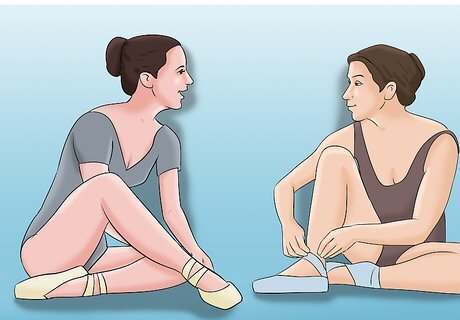
Talk with your team to see what you can improve on if you have multiple performances of the same show. There is always room for improvement, and sometimes performing in front of an audience can help you see what you need to work on.
Be gracious.

Remember to thank the other cast and crew members, music coordinators, and your directors. They deserve credit for all of the hard work they did to help make the show a success. Remember that although they did mostly behind-the-scenes work, that this is in some ways the most important part and that the show wouldn't be possible without them. It might even be a good idea to bring them flowers!



















Comments
0 comment